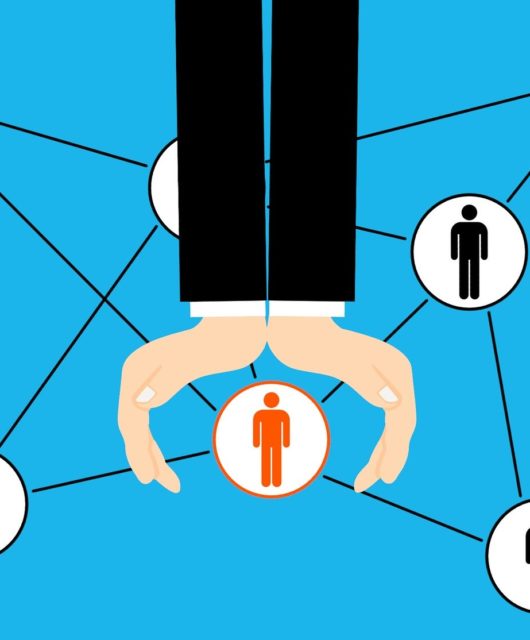6 Ways That Nurses Are Making the World a Better Place
 For eons, medical professionals have sought to help people with whatever solutions, technologies, and medicines were available at the time. While often crude in nature, the medical profession has evolved substantially over the past 50 years. A host of therapies, treatments, medicines and non-invasive surgeries are now available that would have been unthinkable in past generations.
For eons, medical professionals have sought to help people with whatever solutions, technologies, and medicines were available at the time. While often crude in nature, the medical profession has evolved substantially over the past 50 years. A host of therapies, treatments, medicines and non-invasive surgeries are now available that would have been unthinkable in past generations.
The notion of nursing is actually a relatively recent phenomenon, first emerging during the 19th century thanks to pioneers such as Florence Nightingale. Since then, nursing schools have gained prominence in the world of medicine, offering millions of people the opportunity to pursue medical careers without the excessive costs and time commitments many doctors face.
It’s easy to take them for granted, but nurses are transforming the way medicine works and making the world a better place. Here are eight examples of how they’re making it happen.
Table of Contents
Through a Proliferation of Nursing Education
Nurses are now more than ever able to pass on their knowledge and skills to others – and it’s a truly global affair. With many online and accelerated BSN nursing program options, people from anywhere can train in the field.
This means there are a variety of life-saving healthcare workers in developing, rural and remote corners of the world, who can now provide desperately needed services to local communities. The benefits of a traditional or accelerated BSN nursing program are helping communities that may not have common knowledge of preventative, hygienic or proper procedures for healthcare, to learn about these important concepts and improve health outcomes in places where modern medicine is only now emerging.
Through At-Home Care
One of the biggest costs of healthcare in most countries are those associated with long-term hospital care. Governments and patients alike can find themselves footing thousands of dollars in costs for just a single night in the hospital, with long-term stays quickly becoming prohibitively expensive.
Nursing is now transforming how we think about and care for patients in many situations. Those in need of recurring, medium-term or long-term healthcare have at-home options, such as:
- Home health care aides who visit on a daily, weekly or as-needed basis
- Live-in caregivers, who may often be family members and who are compensated through insurance programs for their services
- Senior-specific home health care options
These options help dramatically lower costs, saving money for patients and insurers alike. In recent years, this kind of care has become incredibly popular for such reasons. However, at-home care also guarantees a more personal interaction that many patients prefer, thereby improving the patient experience.
Through Proactive & Preventative Measures
Nurses often find themselves on the front lines of caring for others. While much of the treatment comes in the form of treating existing ailments and problems, nurses help people discover emerging problems and find ways to solve future health concerns through proactive and preventative treatment.
Nurses are trained to ask a series of questions that may or may not relate to the reason(s) you’re seeing a doctor or health professional. These questions are used to determine whether or not emerging conditions or future health problems pose a cause for concern.
Additionally, many nurses look for signs of mental issues just as much as physical ones, such as depression, suicidal ideation, and conditions caused by chemical imbalances.
By focusing on preventative care, taxpayers and patients can save money, live longer lives and be healthier both physically and mentally.
Through Emotional Support
There is no doubt that illness can be a traumatic and stressful experience for people. Additionally, those suffering from an illness who are older may also be subject to prolonged periods of loneliness, which is a major problem in many communities according to AARP:
“According to the U.S. Census Bureau, 11 million, or 28% of people aged 65 and older, lived alone at the time of the census. As people get older, their likelihood of living alone increases. The AARP reports that more and more older adults do not have children. That means that there are fewer family members to provide company and care as those adults become seniors.”
Nurses who earn a traditional or accelerated BSN nursing program degree learn early on about the need to provide compassionate care. The role of emotional support in many nursing settings makes a huge difference in the day-to-day lives of the people who nurses serve.
Ultimately, physical and emotional pain can be better managed or even eliminated through periodic interaction and emotional support. This is yet another crucial service that many nurses provide.
Through Lobbying and Activism
Nurses often know what’s best for their patients, even when governments and healthcare systems do not. There can often be conflict between those who want to see desperate reforms and improvements and those who have direct power to do so.
Because of this, many nurses use their positions within the healthcare sector as a foundation for organizing to improve healthcare outcomes. A variety of nursing advocacy groups, unions, and political organizations are dedicated to reforming healthcare procedures, processes, and regulations.
Given that change in the political arena often comes at a glacial pace, these nurses must push consistently – often for years or even decades – to achieve the reforms they seek. If and when such victories occur, they almost always benefit patients, thereby changing the world for the better through civic engagement.
Through Volunteer Work
While nurses can expect to earn meaningful salaries and wages from their efforts, an increasing number choose to give back to their communities by volunteering.
There are many ways in which nurses can volunteer. Some choose to go overseas through charitable medical organizations. Others give their weekends and free time to providing services to patients who cannot otherwise afford to see a doctor.
These selfless acts may not seem like much in the grand scheme of things, but individuals’ lives can be changed permanently and for the better by just a bit of medical charity. In many respects, these acts help change the world one patient at a time.
Nurses may not be the first people you think of when discussing healthcare, but they are in many respects most responsible for handling patients and delivering care. Through these methods and more, nurses are changing the world through their acts of kindness and compassion.









